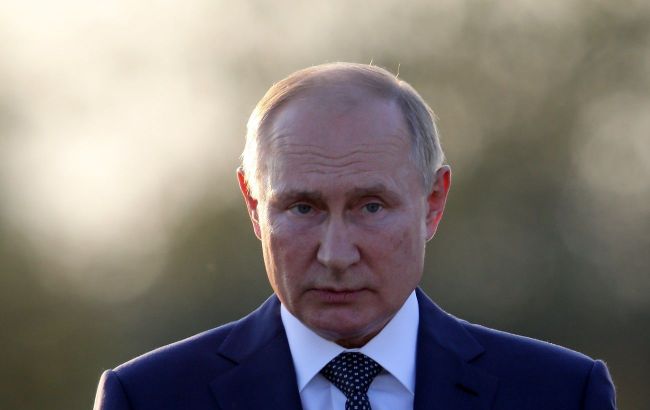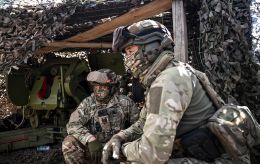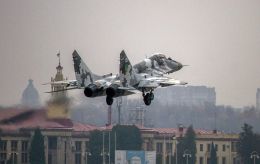Putin's readiness to freeze war in Ukraine explained
 Russian dictator Vladimir Putin (photo: Getty Images)
Russian dictator Vladimir Putin (photo: Getty Images)
The Kremlin can use "signals" to the West about its alleged readiness to put the war against Ukraine "on hold" in order to try to reduce defense aid from partner countries. There have already been similar manipulations by Russian dictator Vladimir Putin, in particular regarding the topic of the negotiations, reports the Institute for the Study of War (ISW).
What kind of signals are these?
The New York Times (NYT), citing former and current senior Russian, U.S., and international officials, previously published a story that described Putin's use of back channels and intermediaries to demonstrate his alleged interest in a ceasefire in the war against Ukraine, despite his recent public statements to the contrary.
According to the NYT, Western officials have been "picking up new signals" through back channels since September that Putin is interested in a ceasefire that would freeze the current front lines in Ukraine. At the same time, the newspaper noted that Western officials have warned that these channels could be "misdirected by the Kremlin" and may not reflect a "genuine desire" to negotiate.
Possible motives of the dictator
The NYT offered several possible motives for Putin's alleged interest in a ceasefire:
- the upcoming presidential elections in Russia in March 2024
- a desire to "keep his options open" for war and to take advantage of the perceived decline in Western support for Ukraine,
- as well as "distraction" from the war between Israel and Hamas.
Rhetoric and manipulation
All of these motives reflect short-term reasons why Putin may seek a temporary "truce" in the war with Ukraine that would benefit Russia by giving it time to prepare for renewed aggression, which coincides with ISW's assessment.
According to the NYT, Putin's public rhetoric, which recently reaffirmed Russia's maximalist goals tantamount to the complete surrender of Ukraine and the West, contradicts reports of his desire to "declare victory and move on."
The report also says that neither the NYT nor its sources have provided any reason to believe that Putin's back-channel communications will reflect his goals more than his public statements.
What the Kremlin says
Kremlin spokesperson Dmitry Peskov told the NYT that "Russia continues to be ready (for talks), but only to achieve its own goals." He was responding to a question about Russia's readiness to negotiate a ceasefire in Ukraine on the current front lines.
Analysts point out that Putin recently reiterated that his maximalist goals in Ukraine - "denazification," "demilitarization," and the imposition of a "neutral status" - remain unchanged. In addition, both the dictator and senior Kremlin officials are increasingly expressing expansionist rhetoric that indicates that Putin's goals are being realized. This does not rule out further Russian attempts to seize other parts of Ukraine.
What is the meaning of Putin's signals?
"The timing of Putin's announcement of interest in a ceasefire is more consistent with Russia's ongoing efforts to delay and obstruct further Western military assistance to Ukraine than with a serious interest in ending the war, other than with a full Russian victory," ISW experts said.
The Institute for the Study of War has observed similar attempts by the Kremlin to mislead Western politicians into putting pressure on Ukraine to start negotiations with Russia in the winter of 2022-2023, and in fact to refocus Western attention on hypothetical negotiations rather than on ensuring that Ukraine has sufficient means before a spring-summer counteroffensive.
"The Kremlin is likely using back channels to achieve a similar effect amidst Western debates for further military aid to Ukraine," the analysts said.
Ukraine's position on negotiations with Russia
Last year, Ukrainian President Volodymyr Zelenskyy approved the National Security and Defense Council's decision to hold talks with Russian dictator Vladimir Putin.
To resume negotiations, Russia must:
- completely leave the territory of Ukraine;
- change the political elite;
- recognize war crimes;
- extradite the organizers of the war to the tribunal.
Recently, Mykhailo Podolyak, an adviser to the head of the Presidential Office, called on the world to stop living under illusions and try to find "any other solution" except Russia's defeat.

